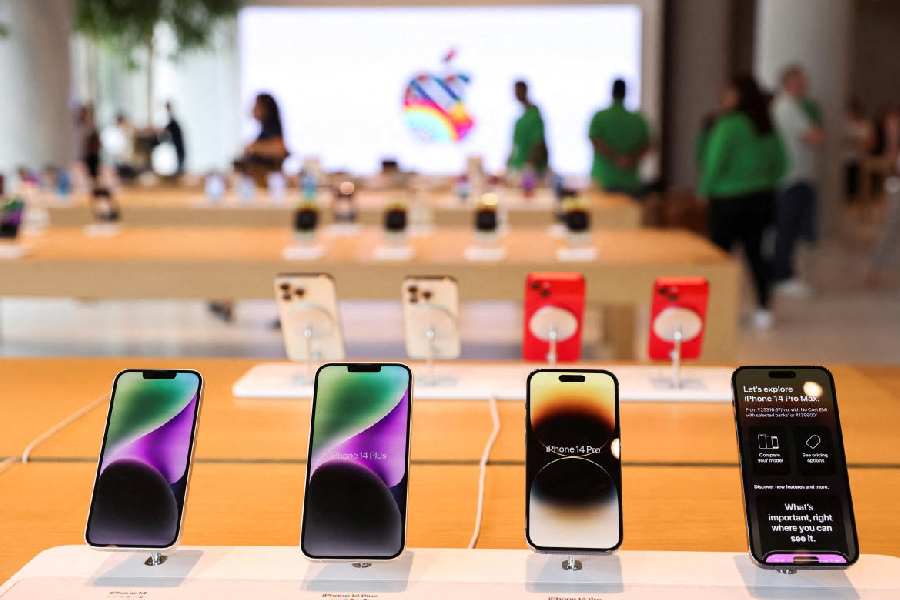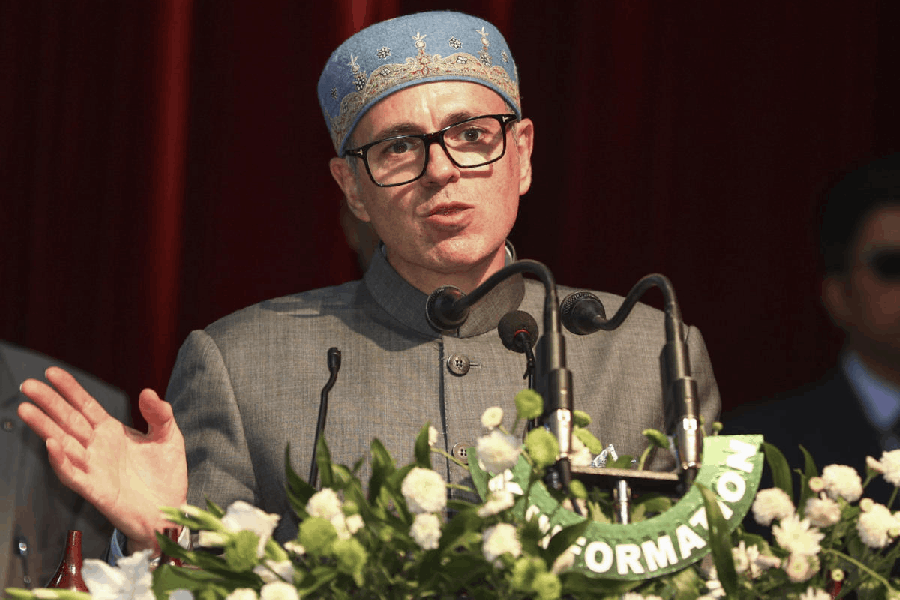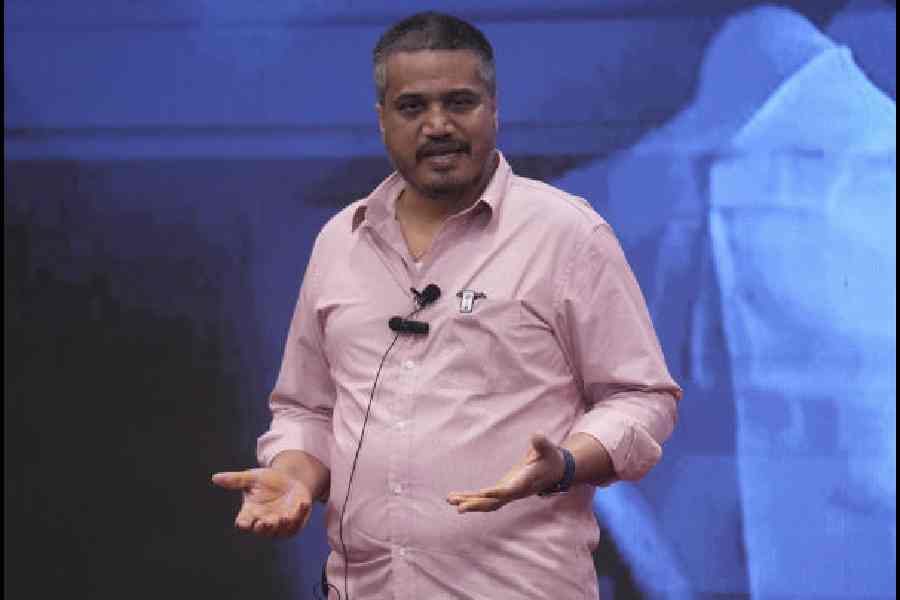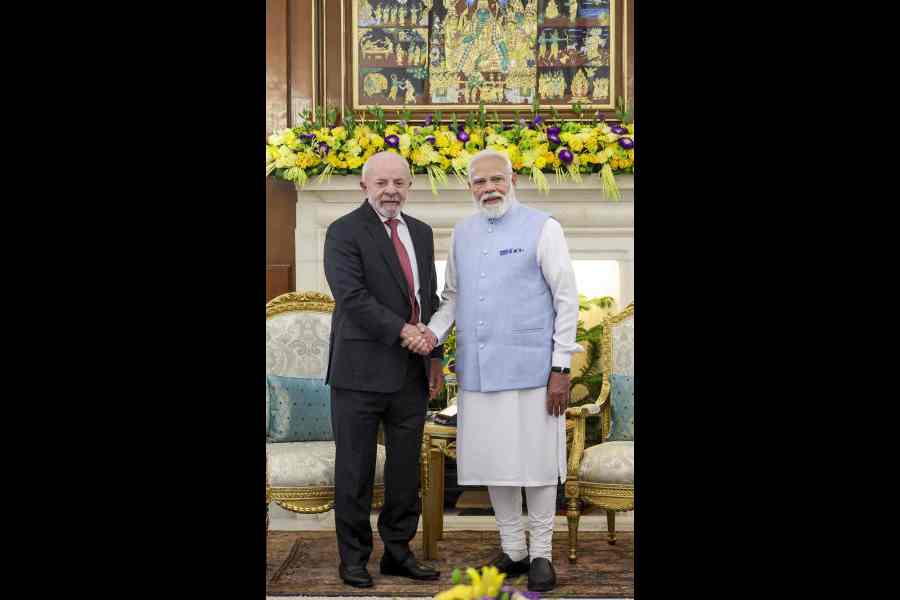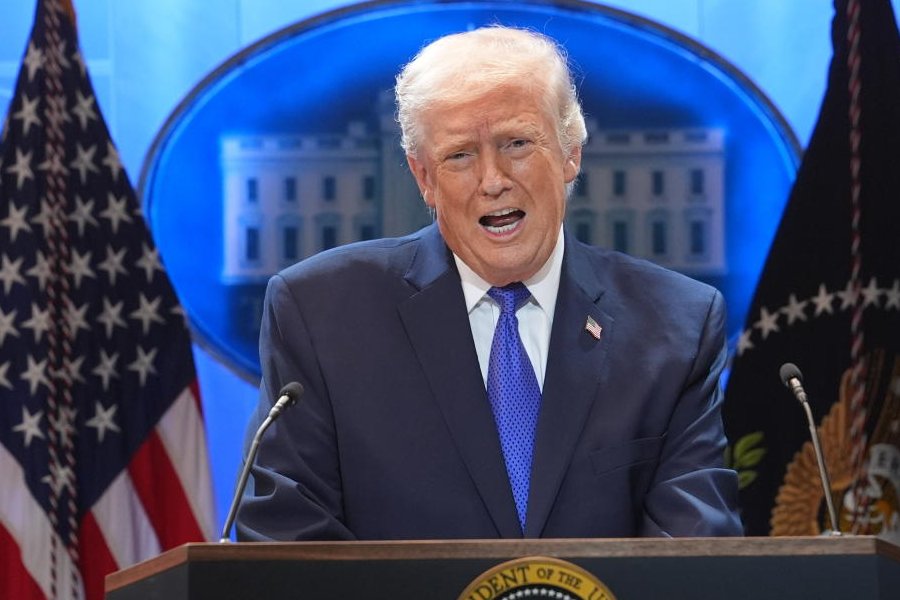Apple chartered cargo flights to ferry 600 tons of iPhones, or 1.5 million of the devices, to the US from India after stepping up production in this country to try and get around President Donald Trump’s tariffs.
Analysts have warned that US prices of iPhones could surge given Apple’s high reliance on imports from China, the chief manufacturing hub of the smartphones, which is subject to Trump’s highest tariff rate of 125 per cent.
However, the tariff on imports from India is far lower at 26 per cent — and it is in abeyance, with only a 10 per cent baseline tariff applying for now, following Trump’s announcement of a 90-day pause this week that excludes China.
Apple’s decision to diversify its production line beyond China over the years is, therefore, paying off.
On Wednesday, the 46 per cent tariffs on Vietnam too were put on hold, with a 10 per cent baseline tariff operational now. Vietnam too has production facilities for Apple, and will help the company absorb the immediate impact of Trump’s 125 per cent tariff on China.
Apple’s strategy offers an insight into the importance India has in its
overall scheme.
The company briskly expanded in India after Covid-induced shutdowns hampered manufacturing at its largest iPhone plant in China. It exported more than $17.4 billion worth of iPhones from India in
the last fiscal year, electronics and information technology minister Ashwini Vaishnaw has said, according to Bloomberg.
Apple is expected to produce around 25 million iPhones in India, Bank of America analyst Wamsi Mohan has told The Wall Street Journal.
About six cargo jets with a capacity of 100 tons each have flown out of India since March, one of them this week, just as new tariffs kicked in, a source and an Indian government official told Reuters.
The packaged weight of an iPhone 14 and its charging cable come to about 350 grams, Reuters measurements show, implying the total cargo of 600 tons consisted of about 1.5 million iPhones, after accounting for some packaging weight.
Apple lobbied Indian airport authorities to cut to six hours the time needed to clear customs at Chennai airport, down from 30 hours, the source told Reuters.
Apple sells more than 220 million iPhones a year worldwide, with Counterpoint Research estimating that a fifth of total iPhone imports to the US now come from India.
In India, Apple has stepped up air shipments to meet its goal of a 20 per cent increase in usual production at iPhone plants, attained by adding workers and temporarily extending operations at the biggest Foxconn India factory to Sundays, the source told Reuters.
The plant turned out 20 million iPhones last year, including the latest iPhone 15 and 16 models.
Foxconn and Tata, the company’s two main suppliers in India, have three factories in all, with two more being built, the agency report added.
Foxconn shipments from India to the US surged in value to $770 million in January and $643 million in February, compared to the range of $110 million to $331 million in the prior four months, commercially available customs data shows.
Earlier this week, White House press secretary Karoline Leavitt told reporters that Trump believed Apple’s recently announced $500 billion investment and increasing import costs sparked by his tariffs would encourage the company to ramp up manufacturing in the US.
But a Bank of America analyst wrote in a note to clients that “iPhone cost can increase 25 per cent purely on higher labour cost in the US”.
Apple has not commented publicly on the tariff war but CEO Tim Cook may address the topic on an earnings call on May 1.
The company has two direct stores in India — Apple BKC in Mumbai and Apple Saket in Delhi.
Cook said during the Q4 earnings call: “We can’t wait to bring four new stores to customers in India.”
In 2023, Cook had told The Telegraph: “What we are is a toolmaker. It wasn’t too many years ago when you would kind of (get) pushed into a career path of an engineer, or a doctor maybe. And now it’s so great that there’s a creative community that’s blossoming out there. It’s quite alive in India.”
Apple has been among the most prominent companies to get stumped by Trump’s tariffs. Before Wednesday, it was on its worst four-day trading stretch since the year 2000.
After the announcement of a 90-day pause on “reciprocal tariffs”, Apple’s shares jumped 15 per cent, adding $400 billion to its market cap, which now stands just under $3 trillion. It was Apple’s best day since January 1998, when late founder Steve Jobs was the interim CEO.
Additional reporting by Reuters from New Delhi

